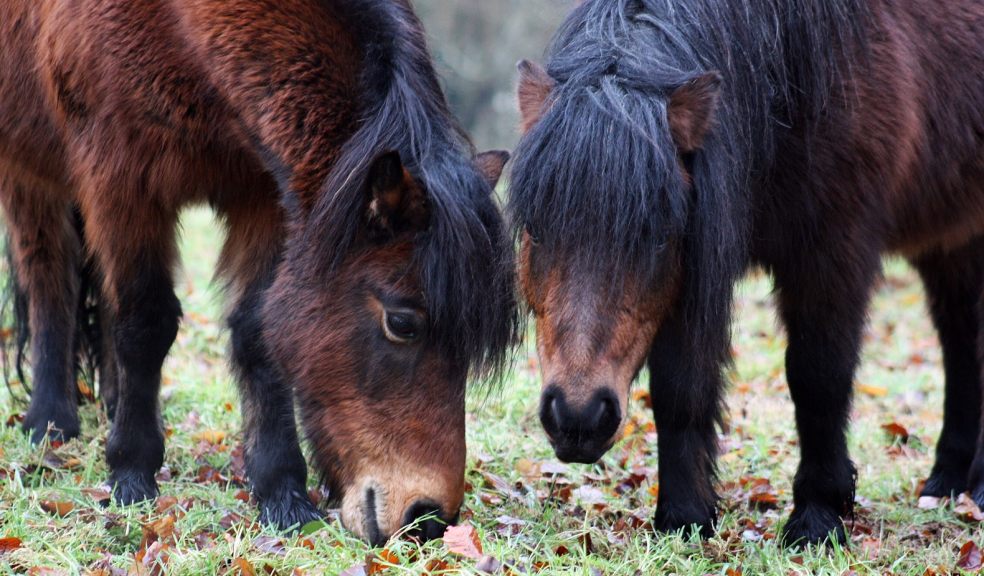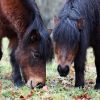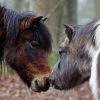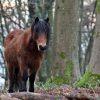
Ponies on gardening duty at Killerton
This week a herd of 10 Dartmoor ponies took up temporary residence on an extinct volcano at Killerton estate near Exeter.
Dolbury Hill is the tree-lined backdrop to Killerton House, known locally as ‘The Clump’, which is steeped in 3,000 years of history.
The hill’s rare geology and relics of an Iron Age Hill Fort have led it to be designated as a Site of Special Scientific Interest and a Scheduled Monument.
Ed Nicholson, Killerton’s Lead Ranger, explains why grazing Dartmoor ponies have had such a positive impact on the nature conservation of this sensitively managed area.
“The ponies have been introduced following scrub clearance work the ranger team and National Trust volunteers carried out last year to protect the ancient relics from damage caused by roots. The ponies are now grazing off the remains of the thick thatch of grasses to allow sunlight to reach the ground and encourage a carpet of delicate flowers to come through in spring”.
Ed continued: “Winter is a great time of year for the Dartmoor ponies to get to work trampling through the brash and scrub. Trampling the ground creates room and light for the food plants that butterflies rely on to flourish”.
“Dartmoor ponies are really suited to exposed sites such as this one because they are robust and nutritionally adapted to grazing scrub. It is high in fibre and low in protein – the best diet for ponies. They make excellent conservation grazers for sites too sensitive for heavy machinery, or where commercial livestock may not thrive. Their placid nature also makes them ideal for grazing public areas.”
An iconic sight at Dartmoor, it’s hard to believe that these pure-bred ponies are now an endangered species. The herd is on loan to Killerton from the Dartmoor Pony Training Centre, who provided the selection, handling and transport of the ponies. Conservation grazing forms part of the Trust's on-going work to support the preservation of the breed.
Helen Trebble, Killerton’s Engagement Officer for the Outdoors, said: “The Dartmoor ponies will stay with us until March, moving freely around the hilltop which is, coincidently, the best place at Killerton to enjoy views of Dartmoor. We welcome visitors to come and see them, but it is important to remember not to feed them (as tempting as it may be) and we ask that dogs are kept on a lead.”
Killerton’s shop and café is open daily, 11am-4pm. Killerton House opens on Saturday 14 February. Visit nationaltrust.org.uk/Killerton
















